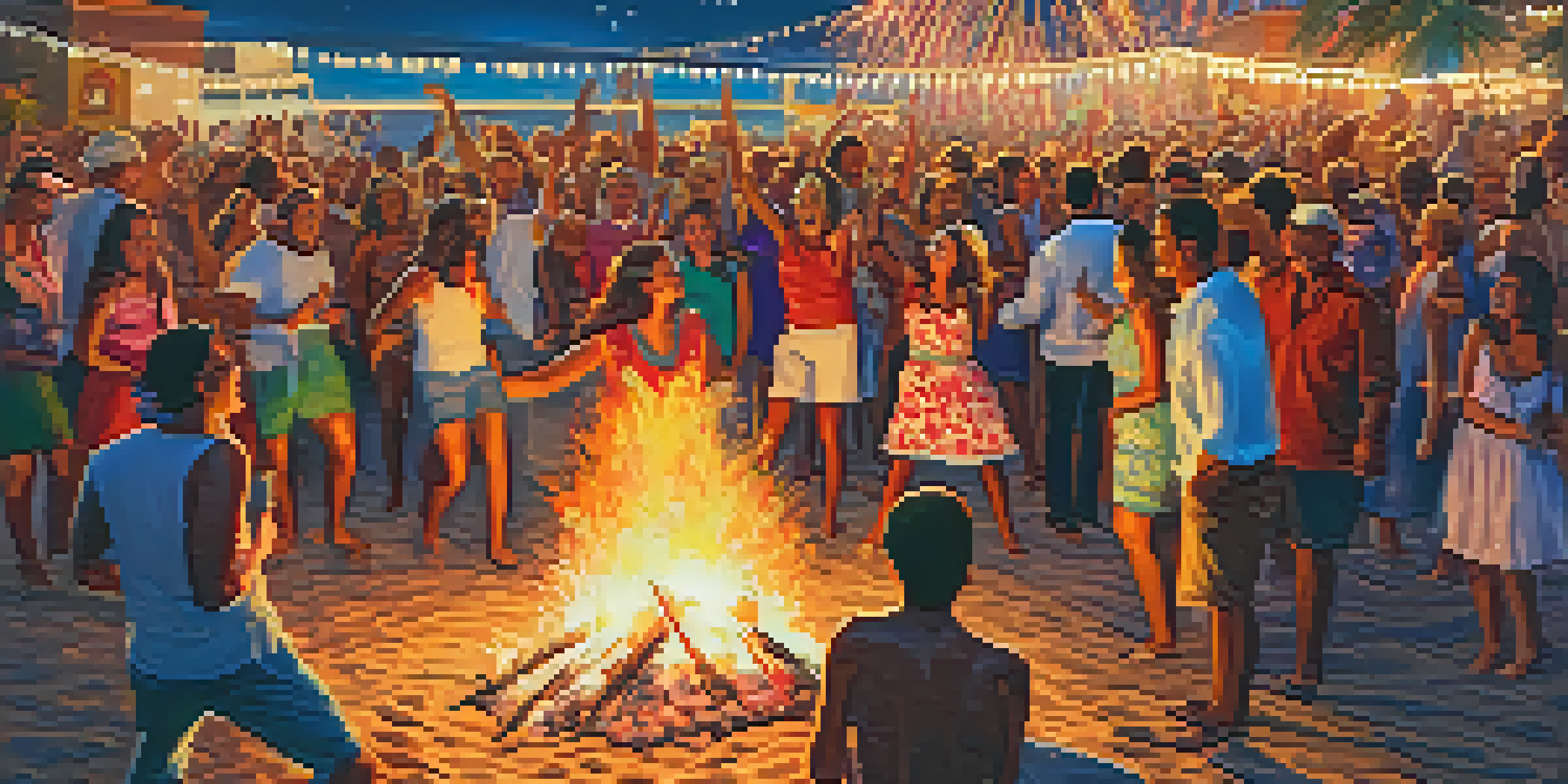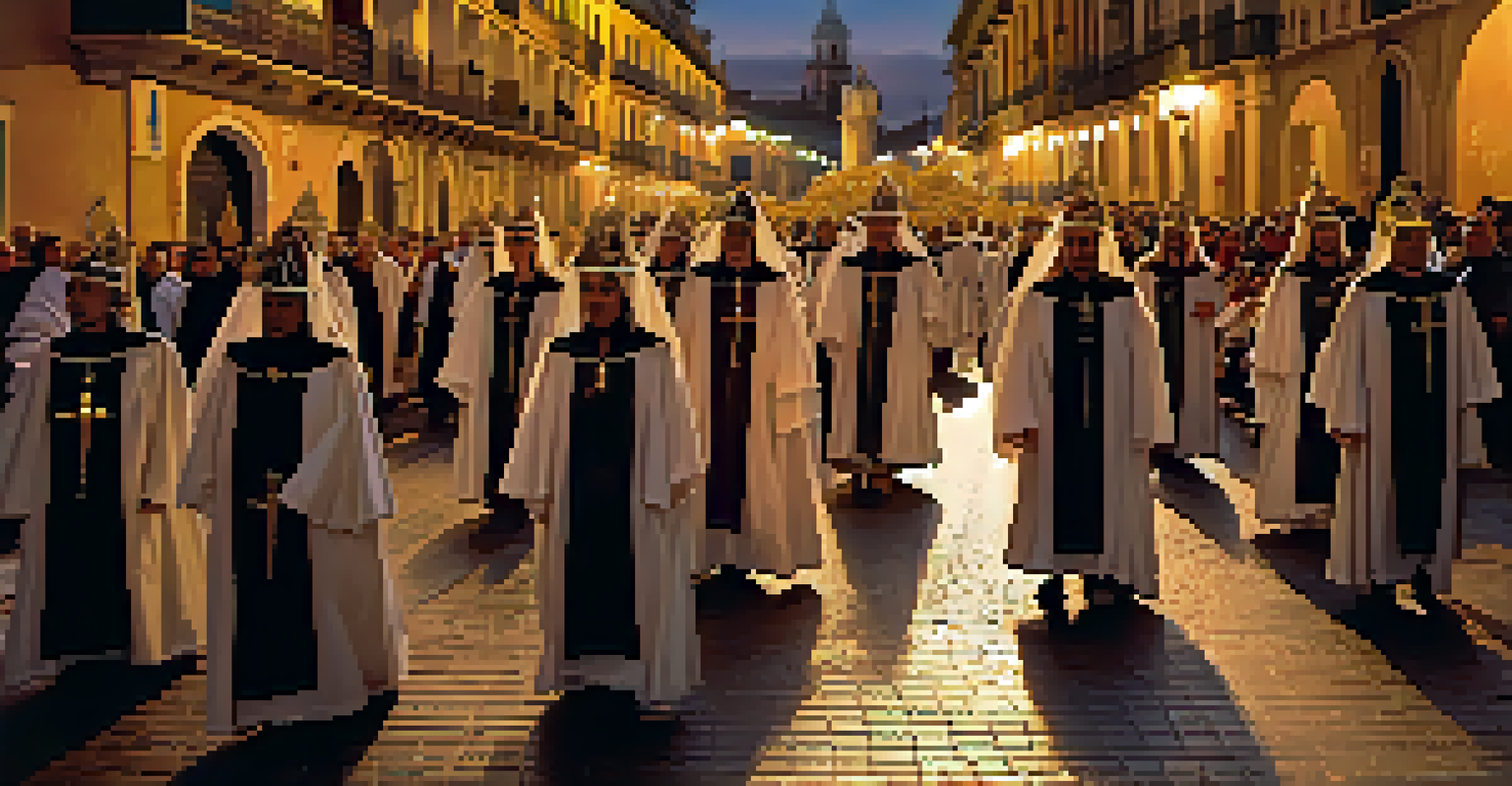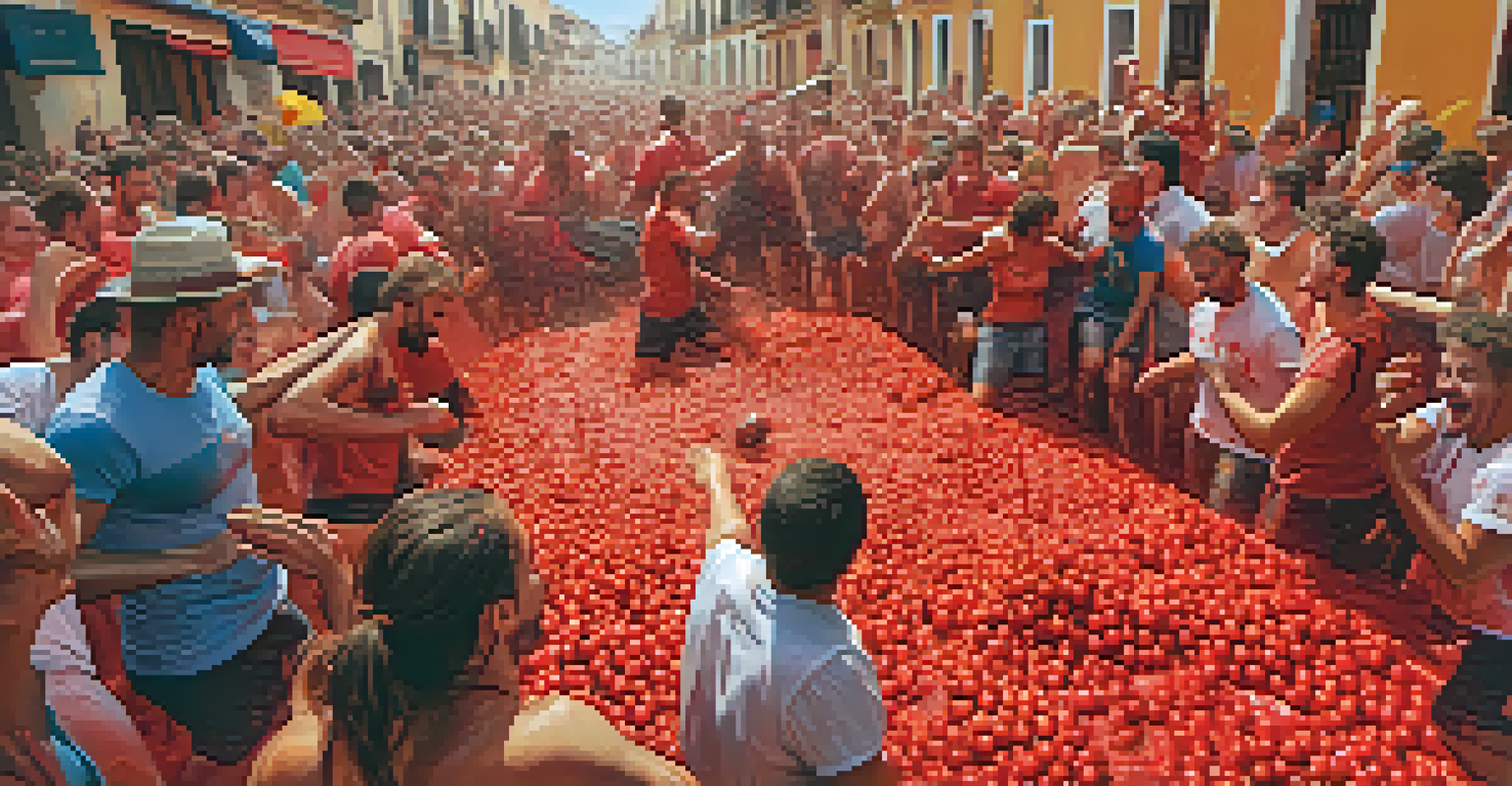Cultural Insights: Festivals Celebrating Spirituality in Spain

The Essence of Spirituality in Spanish Culture
Spain is a country rich in history and culture, where spirituality plays a significant role in everyday life. From the influence of Catholicism to the celebration of ancient traditions, spirituality is woven into the fabric of Spanish society. This deep-rooted connection is often expressed through various festivals that honor religious beliefs and spiritual practices.
Spirituality is not a religion. It is a way of life.
These festivals not only highlight the diverse religious landscape of Spain but also foster a sense of community among participants. People come together to celebrate their faith, share stories, and reinforce their cultural identity. This communal aspect of spirituality is what makes these festivals truly special.
As we delve deeper into the various festivals that celebrate spirituality in Spain, we’ll see how they reflect the country’s unique blend of traditions, beliefs, and regional customs. Each festival tells a story, inviting both locals and tourists to partake in a rich tapestry of cultural heritage.
Semana Santa: A Profound Spiritual Experience
Semana Santa, or Holy Week, is one of the most significant spiritual festivals in Spain, celebrated in cities like Seville and Málaga. This week-long event commemorates the passion, death, and resurrection of Jesus Christ with solemn processions that evoke deep emotions. The streets come alive with elaborate floats, religious icons, and participants dressed in traditional robes, creating a powerful atmosphere.

Each procession tells a different story from the Bible, and the devotion of the participants is palpable. Crowds gather to witness the spectacle, creating a sense of unity as they share in the solemnity of the occasion. The intricate details of the floats and the haunting music contribute to the festival's spiritual ambiance, making it a moving experience for all involved.
Spirituality in Spanish Festivals
Spain's festivals intricately weave spirituality into community celebrations, reflecting a rich cultural heritage.
For many, attending Semana Santa is not just about observing a religious event; it’s a chance to connect with their heritage and reflect on their spirituality. This festival beautifully illustrates how tradition and faith intertwine, turning the streets of Spain into a living tapestry of devotion.
Fiesta de San Juan: Celebrating Light and Renewal
The Fiesta de San Juan, celebrated on June 24th, marks the summer solstice and symbolizes light, renewal, and the triumph of good over evil. This festival is particularly vibrant in coastal regions like Alicante, where bonfires are lit on the beach, and people jump over the flames for good luck. The celebration is rooted in ancient pagan rituals but has evolved to incorporate Christian elements as well.
The journey of a thousand miles begins with one step.
As night falls, the beaches become a gathering place for locals and tourists alike, transforming into a lively party filled with music, dance, and laughter. Fireworks light up the sky, and the sound of waves crashing against the shore adds to the magical atmosphere. This festival emphasizes the importance of community, as people come together to celebrate the arrival of summer and the blessings it brings.
Fiesta de San Juan is not only a time for revelry but also a moment for introspection and cleansing. Jumping over the fire symbolizes letting go of the past and embracing new beginnings, making it a spiritually significant event for many participants.
La Tomatina: A Playful Spiritual Cleansing
La Tomatina, held annually in Buñol, is perhaps one of the most unique festivals in Spain, known for its massive tomato fight. While it may seem like a fun and messy event, it has deeper roots tied to community spirit and a sense of catharsis. The origins of the festival are somewhat unclear, but it has evolved into a celebration of joy and unity among participants.
During the festival, participants throw overripe tomatoes at each other, creating a sea of red. The atmosphere is filled with laughter and camaraderie, as people from different backgrounds come together to engage in this playful chaos. This shared experience fosters a sense of belonging and highlights the importance of community in spiritual expression.
Semana Santa's Emotional Impact
Semana Santa serves as a profound spiritual experience, uniting participants through solemn processions and deep emotions.
The act of throwing tomatoes can be seen as a metaphorical cleansing, allowing participants to let go of their worries and embrace the present moment. La Tomatina serves as a reminder that spirituality can also be found in joy and laughter, making it a beloved event for many.
Fallas de Valencia: A Celebration of Art and Faith
The Fallas de Valencia is a spectacular festival that blends artistry, tradition, and spirituality. Celebrated in March, it honors Saint Joseph, the patron saint of carpenters, and features elaborate sculptures made of wood and papier-mâché. These sculptures, known as 'fallas', are created throughout the year and displayed during the festival before being ceremonially burned, symbolizing renewal and the arrival of spring.
The event is not only a celebration of craftsmanship but also a time for reflection and community bonding. As the fallas are set ablaze, spectators gather to witness the fiery spectacle, marking the end of an era and the beginning of a new one. The festival also includes fireworks, music, and traditional Valencian cuisine, creating an immersive cultural experience.
The Fallas de Valencia embodies the idea that spirituality can be expressed through creativity and communal celebration. It invites participants to reflect on the transient nature of life and the importance of living in the moment, making it a truly unique spiritual experience.
Carnival: Embracing Transformation and Spirituality
Carnival is a vibrant festival celebrated in various regions of Spain, with notable festivities in Cádiz and Tenerife. This lively event takes place before Lent and is characterized by colorful parades, elaborate costumes, and exuberant celebrations. While Carnival is often associated with revelry and indulgence, it also carries profound spiritual significance.
The festival represents a time of transformation, where participants embrace their alter egos and step outside their everyday lives. This temporary suspension of reality allows for a unique exploration of identity and freedom, inviting individuals to express themselves in ways they might not typically do. The spirit of Carnival encourages self-reflection and the celebration of individuality, which can be a deeply spiritual experience.
Pilgrimages as Spiritual Journeys
Pilgrimage festivals like the Camino de Santiago offer individuals a chance for personal growth and reflection through shared experiences.
As participants engage in the festivities, they often find deeper connections with their community and themselves. Carnival serves as a reminder that spirituality can be found in joy, creativity, and self-expression, making it a cherished event in Spanish culture.
Pilgrimage Festivals: Journeying Towards Spiritual Growth
In Spain, pilgrimage festivals hold a significant place in the cultural landscape, with many people undertaking journeys to sacred sites. One of the most famous is the Camino de Santiago, where pilgrims traverse various routes to reach the shrine of Saint James in Santiago de Compostela. This journey is not just a physical trek; it’s often seen as a spiritual quest for personal growth and reflection.
Pilgrims from all walks of life embark on this path, sharing stories and experiences along the way. The camaraderie and support found among fellow travelers create a sense of community, reinforcing the spiritual aspect of the journey. Many pilgrims find that the act of walking helps them connect with their inner selves and reflect on their life’s purpose.

The pilgrimage culminates in the celebration of the feast day of Saint James, where participants gather for a communal mass and festivities. This blend of physical journey and spiritual exploration highlights the importance of pilgrimage festivals in Spain, offering a unique opportunity for individuals to deepen their faith while fostering connections with others.
Conclusion: The Spiritual Tapestry of Spanish Festivals
Spain’s festivals celebrating spirituality are a vibrant showcase of the country’s rich cultural heritage. Each event offers a unique perspective on faith, community, and self-expression, inviting participants to explore their spirituality in diverse ways. From the solemn processions of Semana Santa to the playful chaos of La Tomatina, these festivals highlight the multifaceted nature of spirituality.
Through these celebrations, individuals can forge connections with their roots, engage with their communities, and reflect on their values and beliefs. The communal aspect of these festivals fosters a sense of belonging, making them an essential part of the Spanish way of life.
As you explore these festivals, you’ll discover that spirituality in Spain is not just about religious observance; it’s about embracing life, joy, and connection. This rich tapestry of traditions invites everyone to partake in a journey that goes beyond mere celebration, offering profound insights into the heart of Spanish culture.